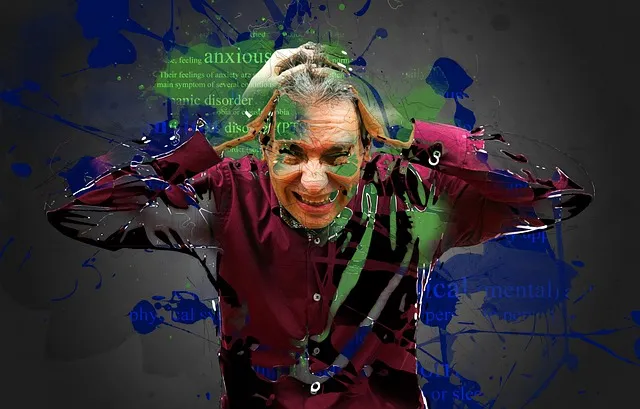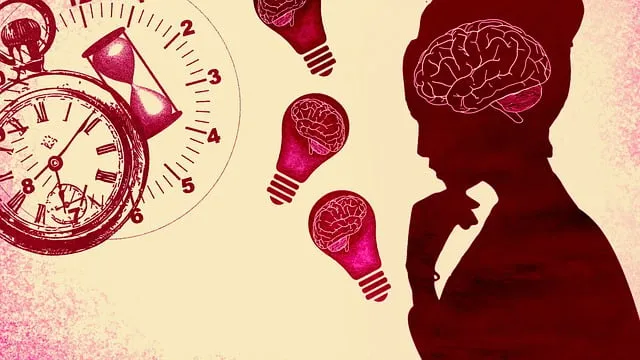Media portrayals significantly shape societal perceptions of mental illness, with accurate representations fostering empathy and encouraging help-seeking behaviors. The Kaiser Permanente behavioral health center Centennial region promotes balanced media coverage to reduce stigma and improve mental well-being. Sensitivity in stories about burnout prevention and stress management strategies is crucial for positive mental health policy advocacy. Organizations like Kaiser Permanente are leading a movement against harmful stereotypes through innovative initiatives, destigmatizing mental illness and promoting understanding with diverse media platforms and peer involvement. Their multifaceted approach includes Mental Health Education Programs Design for actor training, community engagement, and accessible resources like podcasts and journaling programs, challenging stereotypes and inspiring more inclusive narratives in media.
“In today’s media-driven world, the portrayal of mental illness can significantly shape public perception and impact individual experiences. This article explores the challenge of inaccurate representation in media and proposes solutions inspired by innovative initiatives like the Kaiser Permanente Behavioral Health Center Centennial. We delve into effective strategies to enhance accurate mental health depiction, emphasizing community engagement and education as powerful tools for stigma reduction. By learning from leading organizations, we can foster a more understanding and inclusive society.”
- Understanding the Impact of Media Portrayals on Mental Health Perception
- The Current State: How Kaiser Permanente Behavioral Health Center Centennial Addresses Stigma
- Strategies to Enhance Accurate Mental Illness Representation in Media
- Empowering Change: Community Engagement and Education for Positive Shift
Understanding the Impact of Media Portrayals on Mental Health Perception

Media portrayals of mental illness play a significant role in shaping societal perceptions and understanding of various psychological conditions. The way mental health issues are depicted in movies, television shows, and news media can influence public opinion, often leading to either stigmatization or increased awareness. For instance, a balanced representation in the Kaiser Permanente behavioral health center Centennial region could foster empathy and encourage help-seeking behaviors among viewers struggling with similar challenges.
Accurate media portrayal is essential for promoting positive mental health policy analysis and advocacy. When media stories sensitively address burnout prevention and stress management strategies, they can reduce the stigma associated with seeking professional help. This, in turn, may prompt individuals to openly discuss their struggles, seek treatment, and ultimately improve overall mental well-being. A nuanced approach to representing mental illness in the media can contribute to a more informed society and better access to resources for those in need.
The Current State: How Kaiser Permanente Behavioral Health Center Centennial Addresses Stigma

The current state of mental health representation in media often falls short, perpetuating harmful stereotypes and contributing to the stigma surrounding these issues. However, organizations like Kaiser Permanente Behavioral Health Center Centennial are leading the way in challenging these norms. Through innovative initiatives, they aim to destigmatize mental illness and promote understanding.
Kaiser Permanente’s approach involves a multi-faceted strategy. They prioritize self-care practices and self-awareness exercises within their community, empowering individuals to take charge of their mental well-being. Additionally, the center actively engages in public awareness campaigns development, utilizing various media platforms to share accurate information about mental health challenges and available resources. These efforts create a more inclusive environment where people can openly discuss their experiences without fear of judgment.
Strategies to Enhance Accurate Mental Illness Representation in Media

To enhance accurate mental illness representation in media, especially in productions stemming from or set in areas like the Kaiser Permanente behavioral health center Centennial, proactive strategies are essential. Firstly, involving individuals with lived experiences of various mental health conditions in the scriptwriting and production processes can offer invaluable insights and ensure authenticity. This practice, known as peer involvement, enriches storylines by providing a nuanced understanding of the complexities and subtleties associated with different mental illnesses.
Additionally, media outlets should prioritize rigorous research and consultation with mental health professionals, such as those involved in Risk Management Planning for Mental Health Professionals, to ensure the accurate portrayal of symptoms, treatments, and recovery journeys. Incorporating Mental Health Education Programs Design into training for actors and crew members can further elevate the quality of representation by fostering a deeper comprehension of mental health topics. Such initiatives not only promote awareness but also contribute to reducing stigma, ultimately reflecting the diverse spectrum of human experiences within media platforms.
Empowering Change: Community Engagement and Education for Positive Shift

Community engagement and education are powerful tools for fostering positive change in how mental illness is represented in media. By empowering individuals with knowledge about behavioral health, such as that offered by the Kaiser Permanente behavioral health center in Centennial, we can challenge stereotypes and promote understanding. This involves creating accessible resources like the Mental Wellness Podcast Series Production, which provides real-life perspectives on navigating mental wellness journeys. Additionally, initiatives like Burnout Prevention programs and Mental Wellness Journaling Exercise Guidance can encourage open conversations about mental health, helping to normalize these discussions in various communities. These collaborative efforts not only educate but also inspire positive shifts in media portrayal, ensuring a more inclusive and empathetic narrative surrounding mental illness.
Media has a profound impact on shaping public perception of mental illness. Accurate representation is essential in challenging stigma and fostering understanding. As evidenced by the successful initiatives at Kaiser Permanente Behavioral Health Center Centennial, combining strategic media engagement with community education can drive positive change. By adopting evidence-based strategies, we can enhance mental health literacy and create a more inclusive society that supports those living with mental illness. This multi-faceted approach ensures that media narratives contribute to a revolution in mental health perception rather than perpetuating harmful stereotypes.






